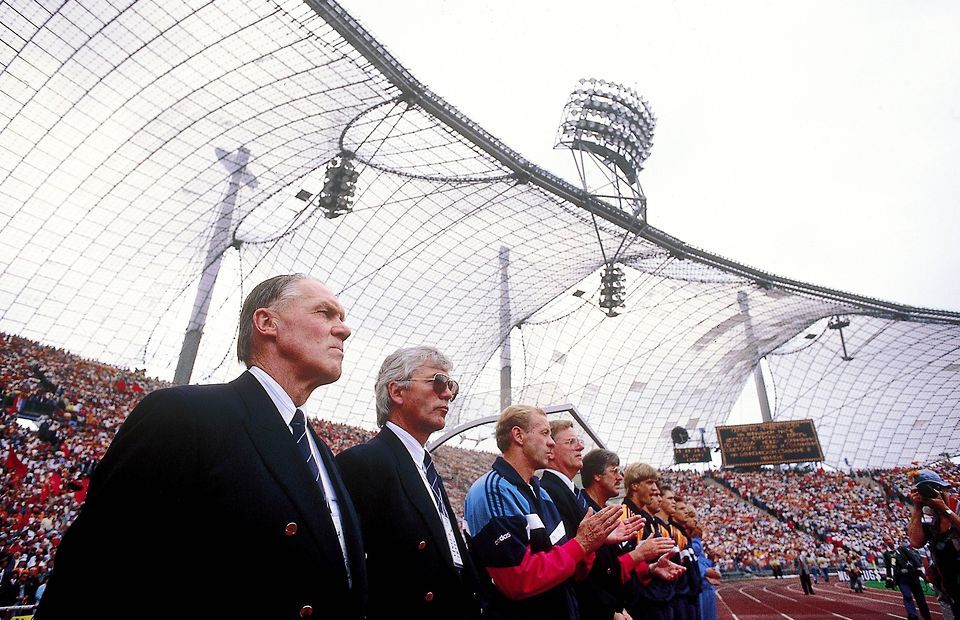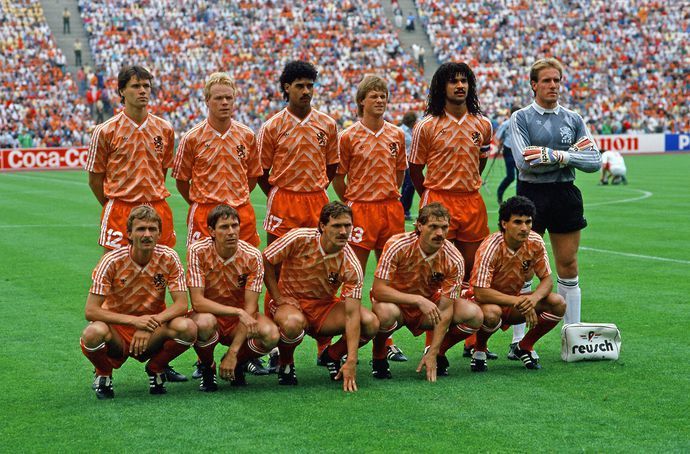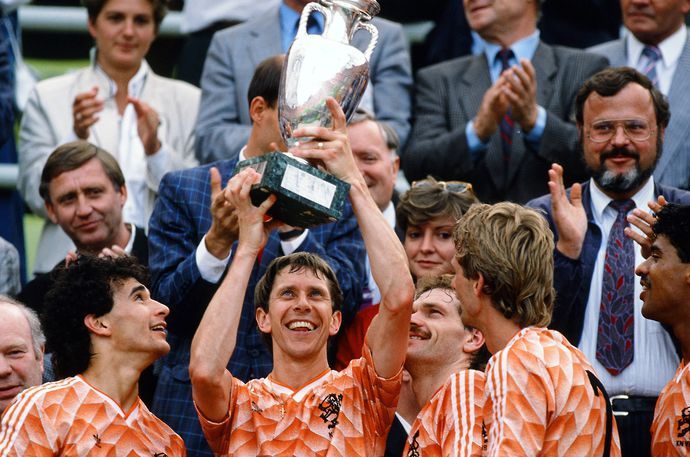Redemption was hanging heavily in the air, rising like a salmon even.
Some 14 years had passed since totaalvoetbal had found its love of the 1974 World Cup to be an unrequited one.
Rinus Michels had spun a footballing web of intrigue with Ajax, and then gone to Catalonia to take Barcelona to LaLiga glory. When he was then asked to take the Netherlands to its first World Cup since the Second World War, despite the host nation being the reigning European champions and twice a World Cup finalist, once as the winner, it was the stylistic upstarts in orange that were expected to prevail, rather than the experienced campaigners.
Instead of the coronation of a footballing ethos that could have shaped the next decade’s thinking of how to deal with the round inflated ball, the game seemed to be cryogenically frozen. Cast into suspended animation.
Michels, with Johan Cruyff in tow, returned to the Camp Nou to regroup. A second coming took longer to materialise than envisaged, and as he batted between Barcelona and Amsterdam, with a spell in Köln for good measure. There was a defined restlessness to his search for perfection that included a year in Los Angeles, when lured to the NASL.
Only unearthing domestic cup success for his labours, in Spain and West Germany, when Michels failed to inspire the Netherlands during the early exchanges of the 1986 World Cup qualifiers, he instead made way for Leo Beenhakker, while moving into the technical director role.
Beenhakker almost turned the campaign around, and he took the Netherlands to within five minutes of qualifying for Mexico, before falling to a late away goal in a play off with their neighbours, Belgium.
With his star rising, Beenhakker was soon within the employment of Real Madrid, and the KNVB turned to Michels once again to take the helm, this time on a permanent basis.
Fast approaching eight years since they last qualified for a major international tournament, the Netherlands had not only been unfortunate not to reach the 1986 World Cup finals, but they had also been denied what had seemed to be a certain place at the 1984 European Championship finals, due to Spain’s improbable last night 12-1 victory over Malta.
A whole generation of talent was beginning to become accustomed to failure. Frank Rijkaard, Adri van Tiggelen, Ruud Gullit, Wim Kieft, and Marco van Basten had all played a part in the Netherlands’ playoff loss to Belgium, in late-1985, while Ronald and Erwin Koeman, Jan Wouters, and Gerald Vanenburg had been a full internationals for some time.
With the experienced goalkeeper, Hans van Breukelen, at Michels disposal, and the vision to recall the veteran midfielder Arnold Mühren, plus the rise of another ruthless goalscorer in the shape of John Bosman, it was just a case of the new, old, Netherlands manager working on the chemistry and psychology of his team.
As much as football changes, the more it stays the same. The speed may increase exponentially, year-on-year, but the geometry and the problem solving essentially remains the same. There is an existing and ever spinning wheel that can never really be reinvented. It is a sport that simply goes through mood changes, and by the summer of 1988, expansion was back in vogue, and it was being peddled by the oldest swingers in town.
Having qualified with an unsettling ease, the Netherlands had lost their opening game of the 1988 European Championship finals, to Valeriy Lobanovskyi’s technically phenomenal Soviet Union.
With the perceived to be half fit Van Basten thrown into the starting line-up to face England, in their second group game, lift off was attained. In a game that had at one stage rested on a knife-edge that has been lost within the mists of time, the second of Van Basten’s hat-trick goals came at a pivotal moment.
It was from this fork in the road that the Netherlands would veer towards their redemptive glory, while Bobby Robson’s England would dissolve into a spectacularly dysfunctional remainder of their tournament.
Fortune, once Michels’ enemy on West German soil, when leading the Netherlands at a major international tournament, now became his ally. In their last, decisive group game, it took a wild slice of luck for Kieft to net the only goal of the game, against Jack Charlton’s Ireland.
In the resultant semi-final, the Netherlands went up against the hosts, in Hamburg, where they reversed the outcome of the 1974 World Cup Final, when clawing their way back from a goal down to win 2-1. Lothar Matthäus and Ronald Koeman had exchanged penalties, before Van Basten swooped to score his magnificent late 88th minute winner.
With extra time looming, it left Franz Beckenbauer’s side with little time for response, and with a third-placed play off no longer in operation, it signalled the abrupt end of West Germany’s tournament.
Michels, the visionary old campaigner, was left with one last hurdle to clear, and it was one that had been set by Lobanovskyi once again.
This time, with the Soviet Union juggling injury problems and cruel suspensions, it was the settled Netherlands team that won the day, and the prize on offer.
Peak football hipsterism, when it comes to the history of the European Championship, the 1988 final had everything: two supreme football strategists pulling the strings from the touchline, an iconic CCCP emblazoned across the pristine white Soviet Union shirts, with Igor Belanov defying medical logic to play.
All of which was complemented by Gullit’s header, Mühren’s cross, Van Basten’s volley, and Rinat Dasayev staggering around like a punch-drunk boxer, who had just been on the receiving end of the perfect sucker punch.
And the response of Michels to it all, was for him to put his hand to his head in bewilderment at what he had just witnessed.
Rinus Michels, the man who had purportedly seen it all, had actually seen nothing yet, before the 1988 European Championship Final. The magical conductor had finally fulfilled the prophecy of 1974.



















